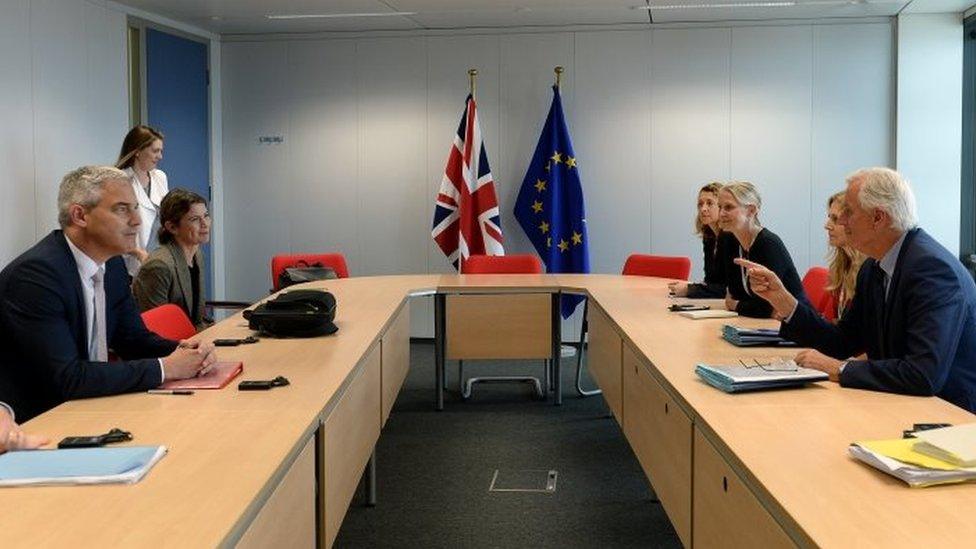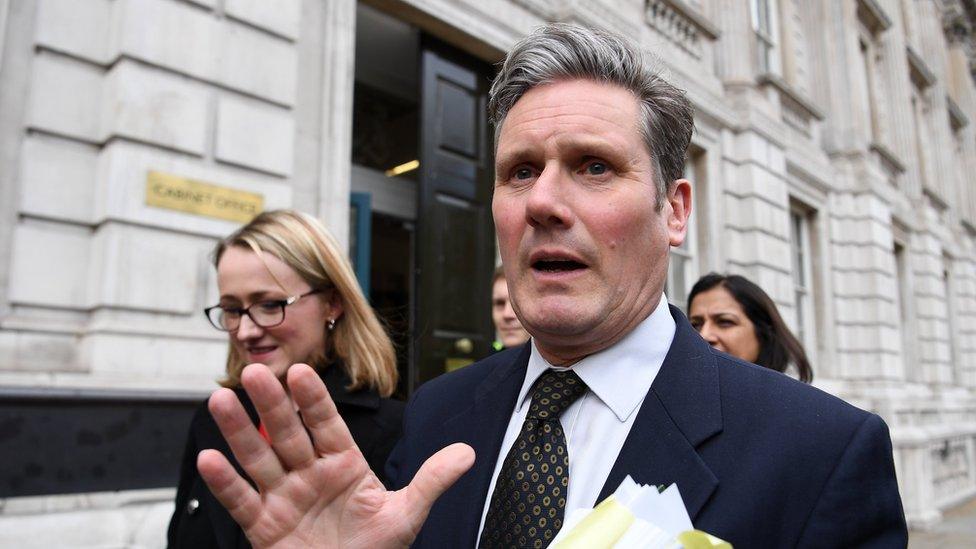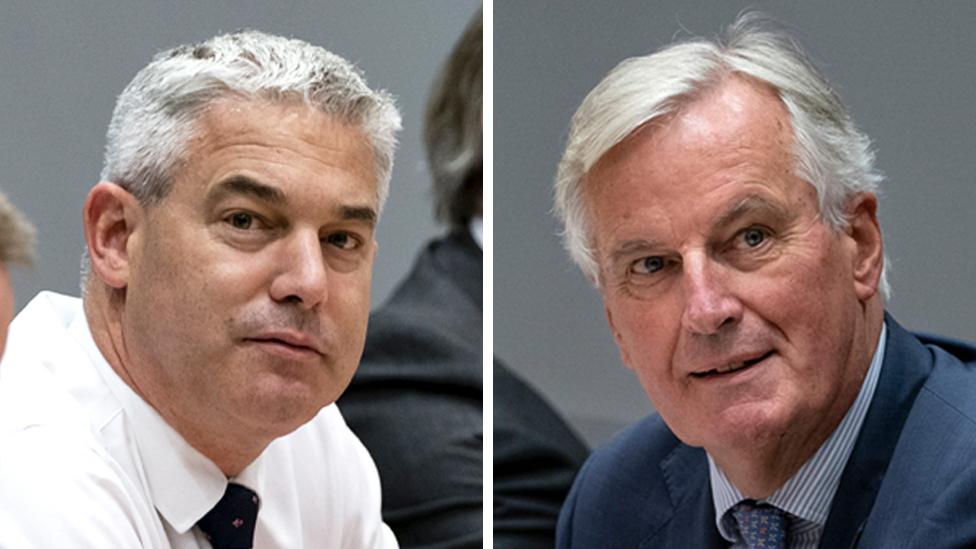Brexit: UK 'planning concrete proposals'
- Published
- comments
Brexit Secretary Stephen Barclay: "There's still a long way to go".
The UK government is planning to put out "concrete proposals" next week for reaching a Brexit deal with the EU, the BBC understands.
Brussels correspondent Adam Fleming said it was expected they would be revealed after the Tory conference but in time for scrutiny ahead of the EU summit on 17 October.
Brexit Secretary Stephen Barclay said the "moment of truth" was approaching.
The UK is currently due to leave the EU on 31 October.
Prime Minister Boris Johnson says this will happen whether or not there is a new deal with Brussels - but adds that he would prefer leaving with a deal.
However, MPs have passed a law requiring Mr Johnson to seek an extension to the deadline from the bloc if he is unable to pass a deal in Parliament, or get MPs to approve a no-deal Brexit, by 19 October.
Meanwhile, Scotland's first minister has warned that Mr Johnson could force through a no-deal Brexit unless the opposition acts.
Nicola Sturgeon said she was "open-minded" about who might emerge to lead a temporary government if Mr Johnson is removed from office in a vote of no confidence.
BBC political correspondent Nick Eardley said he had been told by a senior SNP source that the party's MPs were prepared to put Mr Corbyn in 10 Downing Street "as soon as next week" to extend the Brexit deadline and call an election.
Mr Barclay held talks with the EU's chief negotiator, Michel Barnier, on Friday, telling the BBC afterwards: "I think there is still a long way to go. I think we are coming to the moment of truth in these negotiations.
"We are committed to securing a deal. The prime minister has made clear he wants a deal, but there has to be political will on both sides and that's what we are exploring."
The biggest obstacle to a deal is the backstop - the plan to prevent a hard border between Northern Ireland and the Irish Republic.
The policy - agreed to by former PM Theresa May in her withdrawal deal with the EU, which was rejected three times by Parliament - is unacceptable to many Conservative MPs.

Stephen Barclay and Michel Barnier met for Brexit talks in Brussels
But the European Commission said Mr Barnier had stressed to Mr Barclay during the meeting that it was "essential" there was a "fully operational solution in the withdrawal agreement to avoid a hard border on the island of Ireland, protect the all-island economy and the integrity of the single market".
"The EU remains open and willing to examine any workable and legally operative proposals that meet all these objectives," a statement issued after the meeting said.


If the UK's new proposals prove acceptable to the EU it would trigger a frantic period of treaty-making.
The experts at the European Commission would have to assess whether they are legally watertight and politically acceptable.
The 27 other member states would have to be consulted and the deal tweaked if they had concerns.
Ideally this would all be done a week before the summit of EU leaders of 17 October.
That's an incredibly - and I mean incredibly - tight timeline by the standards of the Brexit process… by any EU process.
And Brussels diplomats are very gloomy because they say the ideas tabled so far by the UK do not go in the right direction.
Some think that means there's virtually no chance of agreement being reached next month.
Although if the prime minister is only going to unveil his plans when Tory party conference has finished, does that mean he has an ace up his sleeve that he knows will satisfy the EU and antagonise his own party?

- Published26 September 2019
- Published16 October 2019

- Published23 September 2019

- Published20 September 2019

